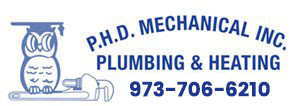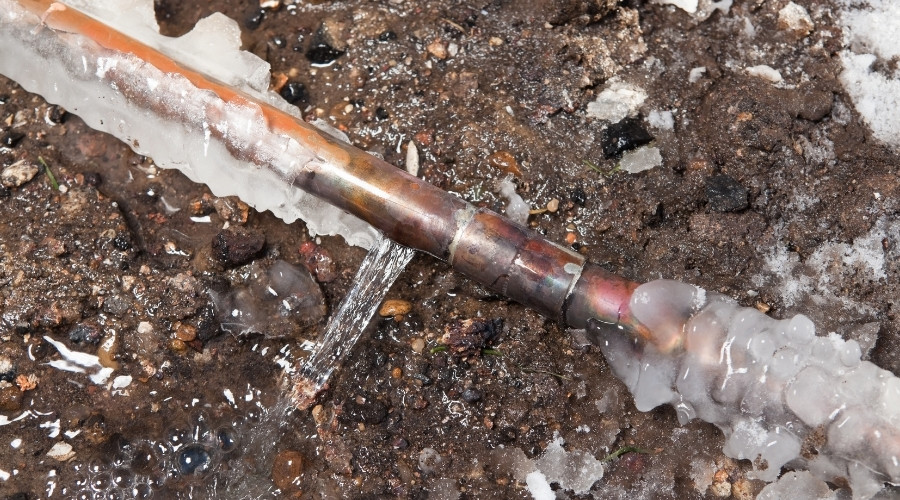Trusted plumbers in Denville, NJ offer clear, practical tips to stop frozen pipes and avoid costly bursts.
Rockaway, United States - November 25, 2025 / PHD Mechanical Inc /
How to Prevent Frozen Pipes This Winter
Colder temperatures can be hard on a plumbing system, especially when pipes run through unheated or drafty areas. Frozen pipes can quickly turn into a burst pipe, causing water damage, expensive repairs, and major disruption to daily life. This post provides an overview of practical ways to protect plumbing during winter, including insulating vulnerable pipes, using indoor heat wisely, and properly winterizing every outdoor faucet.
Insulate the Pipes
 One of the most effective ways to prevent frozen pipes is to insulate pipes in areas that are most exposed to the cold. Pipes located in attics, crawl spaces, unfinished basements, and garages face a higher risk of freezing because these spaces often lack consistent heating. Adding pipe insulation helps shield the water lines from frigid air and slows the rate at which water inside can freeze.
One of the most effective ways to prevent frozen pipes is to insulate pipes in areas that are most exposed to the cold. Pipes located in attics, crawl spaces, unfinished basements, and garages face a higher risk of freezing because these spaces often lack consistent heating. Adding pipe insulation helps shield the water lines from frigid air and slows the rate at which water inside can freeze.
Foam sleeves, fiberglass wraps, or other pipe insulation products can be fitted around exposed lines to provide a protective barrier. This step is especially important for pipes that run along exterior walls or near drafty openings. Taking the time to insulate pipes not only reduces the chances of freezing pipes and a potential pipe burst, but can also help maintain more stable water temperatures, which is beneficial for comfort and efficiency.
For homes that have experienced a pipe burst in the past, extra attention to vulnerable locations is crucial. Combining pipe insulation with sealing gaps, cracks, and air leaks around foundations, windows, and doors creates a more protective environment for plumbing and helps keep the entire structure warmer.
Keep the Heat on and Open Cabinets
 Indoor heating plays a major role in keeping pipes safe when temperatures drop. Maintaining a consistent thermostat setting, even during nighttime or when the house is unoccupied for short periods, can help reduce the risk of frozen pipes. Allowing indoor temperatures to fall too low increases the likelihood that water inside pipes will freeze, particularly in rooms at the edge of the home, such as bathrooms, garages, or kitchens near exterior walls.
Indoor heating plays a major role in keeping pipes safe when temperatures drop. Maintaining a consistent thermostat setting, even during nighttime or when the house is unoccupied for short periods, can help reduce the risk of frozen pipes. Allowing indoor temperatures to fall too low increases the likelihood that water inside pipes will freeze, particularly in rooms at the edge of the home, such as bathrooms, garages, or kitchens near exterior walls.
Another helpful habit is opening cabinet doors that conceal plumbing, such as those under kitchen and bathroom sinks. Closed cabinets can trap colder air around pipes, while opening them allows warm indoor air to circulate more freely. This simple step can make a noticeable difference for pipes that run close to outside walls or sit in less insulated sections of the home.
Together, steady indoor heat and strategic cabinet opening work as a frontline defense against freezing pipes. When combined with basic heating system care, these practices support safer winter operation and reduce the risk of damage caused by a sudden pipe burst.
Winterize Outdoor Faucets
Outdoor plumbing fixtures are among the most vulnerable components when temperatures plunge. Properly winterizing each outdoor faucet helps prevent trapped water from freezing, expanding, and causing cracks or leaks in pipes and fixtures. The first step is disconnecting any hoses attached to outdoor faucets. Hoses should be drained completely and stored indoors to keep residual water from freezing and backing up into the faucet or supply line.
Next, the shut-off valve that controls water to each outdoor faucet should be turned off, if one is available inside the home. After closing the valve, the outdoor faucet can be opened to drain any remaining water in the line. Leaving the faucet slightly open once the water has stopped flowing allows space for any small amount of residual water to expand without causing damage.
For added protection, an insulating cover can be placed over every outdoor faucet. These covers create a barrier between the metal fixture and cold air, reducing the chance of freezing. When all outdoor fixtures are properly winterized—hoses disconnected, lines drained, shut-off valves closed, and faucet covers installed—the risk of a winter-related pipe burst in exterior walls or just inside the foundation significantly decreases.
By insulating vulnerable pipes, maintaining steady indoor heat, opening cabinets, and carefully winterizing each outdoor faucet, households can dramatically reduce the risk of frozen pipes, leaks, and costly winter plumbing emergencies.
About PHD Mechanical Inc
PHD Mechanical Inc provides top-rated plumbing and heating services in Denville and the surrounding areas. They offer convenient scheduling, extended warranties, and peace of mind for all your plumbing and heating needs. Call them today to schedule repiping services in Denville, NJ.

Contact Information:
PHD Mechanical Inc
90 US-46
Rockaway, NJ 07866
United States
Peter Crampton
(973) 706-6210
https://phdmechanicalnj.com/


